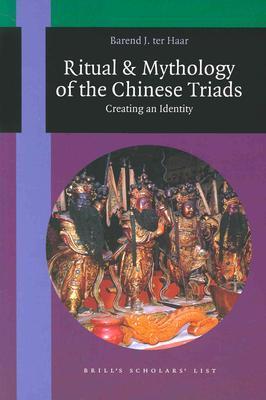Organized crime has long been a shadowy world that operates in the fringes of society, with its tentacles reaching across continents. The recent events unfolding in Rome have shed light on the dark underbelly of the Chinese Triad syndicate's operations in Europe. This chilling narrative highlights the brutal realities and intricate connections within these criminal organizations, bringing to the forefront a story of power struggles and violence.
The execution of a prominent Chinese Triad boss in Rome marks a significant moment in the history of organized crime in Italy. This incident not only reveals the depth of influence these groups hold but also underscores the global reach of their activities. As law enforcement agencies scramble to understand the implications of this violent act, questions arise about the future of such criminal enterprises and how they might evolve in response to increased scrutiny.
Chinese Couple Murdered in Rome: A Glimpse into Organized Crime
A tragic event unfolded in Rome when a Chinese couple was brutally killed, marking a grim chapter in the ongoing conflict between rival factions of the Chinese Triad. The victims were identified as Zhang Dayong, 53, known as Asheng, and his partner Gong Xiaoqing, 38. Their deaths occurred near the Pigneto district, a location that has increasingly become a hotspot for criminal activity linked to these powerful syndicates.
This incident is believed to be part of a larger turf war emanating from Prato, a city renowned for its large Chinese community and associated criminal networks. The couple's murder signifies the escalating tension and violence within these organizations, which have expanded their operations significantly over the years. Italian police are investigating whether this act represents a spillover effect from disputes rooted in Prato's complex underworld dynamics.
Law enforcement officials speculate that the killings may involve high-ranking members of the Triads, specifically implicating Naizhong Zhang, a reputed crime boss currently facing trial. His alleged involvement suggests deep-seated rivalries and power struggles within the hierarchy of these criminal enterprises, further complicating efforts to dismantle them.
Unraveling the Shadows: Understanding the Chinese Triad Networks
The Chinese Triads represent one of the most formidable and secretive organized crime entities worldwide. Operating through an intricate web of alliances and conflicts, these groups have managed to establish footholds in various regions, including Italy. The recent execution in Rome exemplifies the lengths to which these organizations will go to maintain dominance and control over lucrative territories.
Italian authorities are intensifying their focus on dismantling these networks, recognizing the threat posed by their increasing infiltration into local communities. The murder of Zhang Dayong and Gong Xiaoqing serves as a stark reminder of the dangers inherent in confronting such powerful adversaries. Authorities aim to uncover the full extent of these connections and identify key players who orchestrate such violent acts.
As investigations progress, it becomes crucial to understand the motivations driving these crimes. Whether fueled by territorial disputes or internal power struggles, the actions of the Triads continue to impact both their own ranks and innocent civilians caught in the crossfire. Efforts to combat these criminal enterprises must address not only immediate threats but also the underlying structures sustaining them.
Rome's Response: Strengthening Measures Against Organized Crime
In response to the rising tide of violence attributed to the Chinese Triads, Italian authorities are implementing stricter measures aimed at curbing their influence. Law enforcement agencies are collaborating more closely than ever before, sharing intelligence and resources to target key figures within these organizations. The execution of Zhang Dayong and his wife underscores the urgency of these initiatives.
Community engagement plays a vital role in weakening the grip of organized crime. By fostering trust and encouraging cooperation between residents and police, authorities hope to gather valuable information that could lead to breakthroughs in ongoing investigations. Public awareness campaigns highlighting the dangers posed by these groups also contribute to reducing their ability to operate freely.
Ultimately, addressing the issue of organized crime requires sustained commitment and collaboration across borders. As seen in the case of Rome, international cooperation remains essential in tackling transnational criminal enterprises like the Chinese Triads. Only through united efforts can societies hope to dismantle these dangerous networks and restore safety to affected communities.

